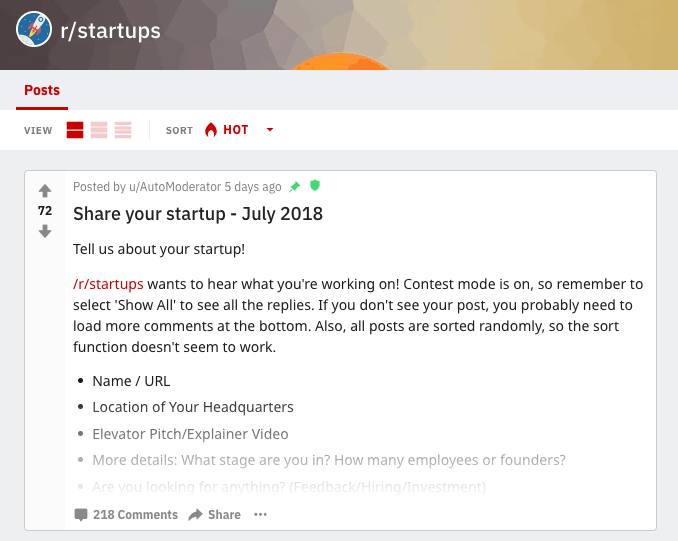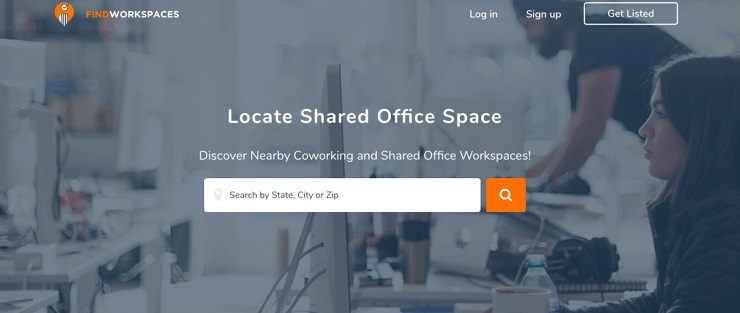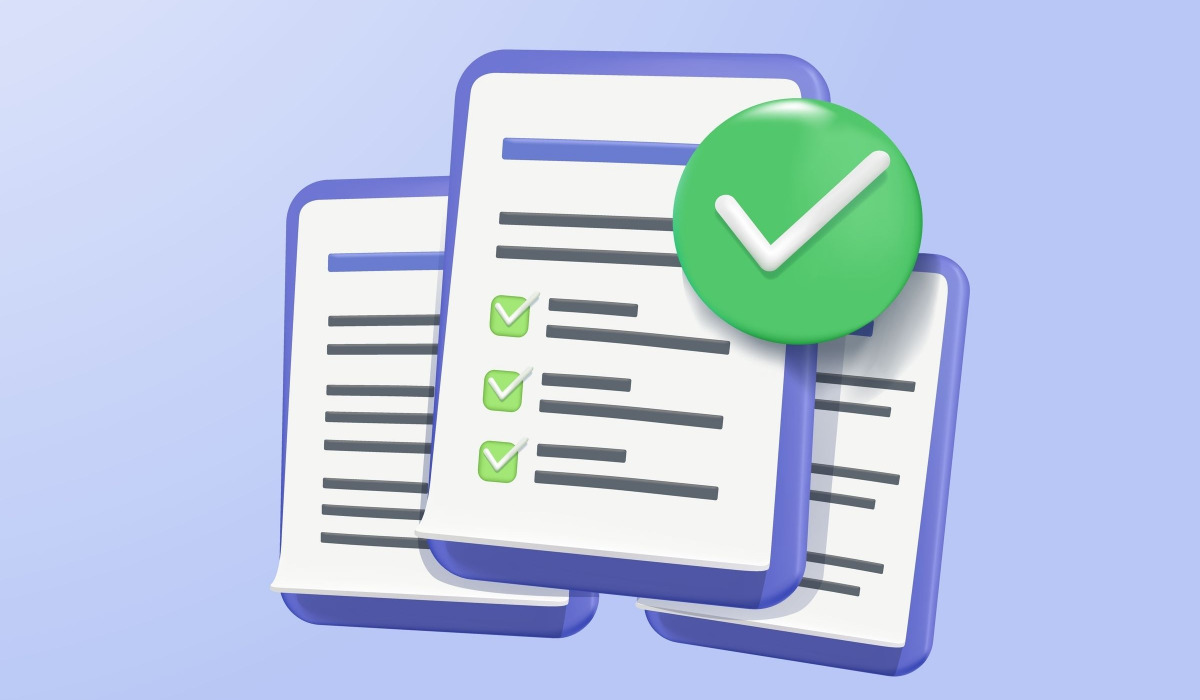I look back on the first few weeks after learning I was going to work remotely the same way I look back on my high school graduation. Full of hope, optimism, and the sense that I was about to embark on a grand adventure. I wrote out dozens, OK maybe hundreds, of plans I had for myself with all this newfound freedom.
Prior to that, my working life was ruled by timesheets and check-ins from my boss. All of those hours I spent working within the confines of someone else’s schedule were now rightfully mine to take back.
It felt like I was finally in control of my life, and the only person who could stop me was me. And guess what? I totally did.
Without the structure I was used to, I found myself working more hours than I had ever worked in an office. With my computer and who knows how many unread emails just a few feet away at all times, I never really clocked out. And I hardly talked to anyone.
My independence came with a catch—I was lonely.
I soon found out these problems weren’t just my own. A study conducted by Buffer in 2018 found that loneliness was the biggest struggle among remote workers, with 21% reporting that they’ve experienced it.
If left untreated or ignored, this kind of isolation and loneliness can lead to depression, another problem for many entrepreneurs, who frequently work alone or in small remote teams. One study found that 30% of entrepreneurs have struggled with depression.
Fortunately, as I continued researching, I discovered tons of ways to learn how to avoid loneliness when working remotely. Here, I’ve compiled every solution, tip, and strategy I came up with since I started working on my own, to help others stay connected, build community, and find both happiness and productivity as a remote worker.
Table of Contents
Know You Are Not Alone
Take Advantage of Your Freedom of Location
Create Your Own Kind of Community
Bring Back Some Traditional Work Habits
Make Positive Contributions to the World
In Conclusion, Go Find Some Friends
Know You Are Not Alone
The rollercoaster of emotions that entrepreneurs can face—especially when they’re starting their careers—is exhausting. And many of us ride it without a support system or a community of people to back us up.
That’s precisely what Brit McGinnis, CEO of Black Bow Communications, discovered after she started facilitating a Facebook group for remote workers and entrepreneurs called The Copywriter Club. The group has over 8,000 members who interact and help each other on a daily basis.
“For me, loneliness can definitely lead to productivity,” McGinnis said. “It can often be a bad coping mechanism. I usually translated social anxiety into working a lot, which led to great things like an early journalism career and writing six books. But it didn’t always make me feel better. My worst working habits were also more ingrained and harder to get rid of later on.”
Embracing the hustle and the nonstop grind seems to go hand-in-hand with freelancing and entrepreneurship. While working hard is admirable, that alone is not going to make you happy. If you don’t make an effort to build a community and find your people now, you put yourself at risk of drowning in your loneliness later on.
Consider the following ways you can take full advantage of your remote status, cultivate strong human connections, and dare I say, have a little fun in the process.
EXCLUSIVE FREE TRAINING: Successful Founders Teach You How to Start and Grow an Online Business
Take Advantage of Your Freedom of Location
Remote workers and entrepreneurs can work virtually anywhere in the world. But rather than spend a weekend in Bali or even try out the new coffee shop down the street, we often sit huddled up in our office caves.
“Loneliness is a motivation and inspiration killer,” said Kaleigh Moore, freelance writer and co-owner of Lumen Ventures. “Feeling isolated is distracting, and it sucks out your ability to do your best work.”
To battle this, Moore has made it a point to step out of the office, where she spends 90% of her day, and work at a coffee shop or go to exercise classes. She also tries to travel more, which at times can mean taking on less work, but she knows her mental health is a priority.
So, yeah, it’s time to get outside and into the sunlight. Here’s how to make the most of your newfound freedom:
Spend Time Working Outside
Doesn’t sipping a cup of coffee and checking your emails while laying about in your backyard sound a hell of a lot better than doing it at your kitchen table?
If you have a balcony or a front porch, now is the time to take advantage of it. If there’s a coffee shop or a restaurant with some killer outdoor seating, make a plan to go daily, as weather permits.
You don’t have to camp out for hours to reap the benefits of getting out of the house. Being a real, active participant in the world and grabbing a cup of coffee or tea from somewhere other than your Keurig is crucial for your overall wellbeing and productivity as an entrepreneur.
Plan for an Active Break in Your Day
If you’ve got a nasty beehive on your front porch that you’d rather not deal with or the coffee shop down the street is too loud to get anything done, you should still make an effort to get out of the house at least once every day.
Start work an hour earlier than usual—or plan to work an hour later, if needed—and schedule a noon yoga class. Decide that you’re going to go grocery shopping midday or meet a friend for lunch. One of the major benefits of working from home is the flexibility in your schedule. If you’re not taking advantage of it, then you’re doing yourself a serious disservice.
Get a Wifi Hotspot
One of the best things I’ve ever done for myself was sign up for a hotspot on my phone plan. Before that, I was chained to coffee shop wifi, which is average at best, or hoping that I could remember my mom’s wireless password, which I never could.
Here’s a list of all the places I’ve been able to get some work done thanks to my hotspot:
- A dog park
- The beach
- A bar
- Literally any restaurant anywhere ever
- And on one particularly rough occasion, the parking lot of a McDonalds
I first discovered the magic of a mobile hotspot when I moved into a new apartment and couldn’t get wifi for two weeks. I bought a $40 AT&T no-contract hotspot — a device separate from your phone similar to a portable WiFi router — and loved the freedom of being able to connect anywhere.
I’ve since found the no-contract hotspot’s connection to be shaky, so I switched my cell service to Verizon and paid the extra $20 month to have a hotspot on my phone. Verizon has the best hotspot service, according to Android Authority, and I have to agree.
But AT&T, Sprint, and T-Mobile all offer hotspot services of their own. If you plan on using your phone’s hotspot for a while, just make sure you bring your charger, because it definitely eats up your battery.
You’ll find that’s a small price to pay for total freedom.
Plan a Solo Work-cation
Sometimes, a change of scenery is all we need to get the creative juices flowing again. If you’ve found yourself stuck in a particularly bad rut as of late, it might be time to pack your bags and get out of dodge for a bit.
Spend a couple of days, a week, or even just a weekend at a nice hotel or an Airbnb in a different city. It could be across the country to a place you’ve never been, or just an hour drive up the road to your favorite spot.
No matter how fancy you get with it, you’ll be way more likely to explore and take advantage of your digital nomad lifestyle when you’re somewhere new.
Consider a New Town
You’re a free bird now, my friend. Don’t stay in the same city if it doesn’t serve you. While there are obviously more factors at play when you have a family to take care of, if there’s an option for you to move somewhere else, I’d at least open your mind to it.
Ask yourself these questions:
- Are there opportunities here for me to be more social that I’m just not taking advantage of?
- Are enough people I connect with, like, and admire here for me to want to build a community around them?
- Is there somewhere else that might have more resources and opportunities for me to be social and build my network?
If you’ve got the feeling that you might be happier living somewhere else, consider moving. Until it’s gone, we don’t realize how much of our community is connected to our job. And when you work alone, you have to work harder to build that community. Pick a place that makes it easier.
According to Nomad List, an online digital resource for digital nomads, Los Angeles is the best place in the United States for remote workers; followed by Raleigh, North Carolina and Chattanooga, Tennessee. If you’re feeling like a total change of scenery, Bangkok is listed as the number one place in the world, followed by Budapest and Barcelona.
Consider Going Full Nomad
If you’re single with no kids and few attachments other than your work, why not give nomading a try? There are tons of great resourcesout there for people who want to travel while working.
EXCLUSIVE FREE TRAINING: Successful Founders Teach You How to Start and Grow an Online Business
Create Your Own Kind of Community
We like to think that we don’t need other people, but as research has proven repeatedly, we like, really do.
The New York Times reported that people who have little social connection are more likely to have disrupted sleep patterns, altered immune systems, increased inflammation, and higher levels of stress. In addition, isolation can increase your chance of heart disease by 29% and your chance of a stroke by 32%.
Fortunately, online connection offers us a lot of opportunities. Freelance copywriter Joseph Rocks built an entire support system online and found that he liked it so much, he moved closer to some of the people he met through it. It really helped him deal with the loneliness that comes with working from home.
“I wanted to be close to people I considered my best ‘internet coworkers,’ who gradually became lifelong friends,” Rocks said. “I don’t have much family still living and that makes entrepreneurship even harder and lonelier at times, so the online community dynamic has been really important for me to build a support system.”
If you find yourself struggling to find a sense of community, remember that it does take time and consistent effort. But you’ll start to reap the benefits of daily human connection if you start here:
Ask for Virtual Meetings
If the only interaction you have with your team is through Skype chats and email, you’re going to feel really disengaged. Ask members of your team or clients if they would be down to video chat or to check in more throughout the day. Meetings tend to be time-wasters, so if you’re suggesting a quick 15-minute chat, you might be more likely to get people on board.
Set up Virtual Watercooler Chats
What is work if you’re not recapping The Bachelor or arguing about sports? If you work with a team, ask your favorite co-workers if they want to have an end-of-the-day coffee chat via Skype or set up a weekly date with some fellow remote workers and entrepreneurs to talk about your different interests and find out what you have in common.
Find Your Online Tribe
A perfect first step for those of us who are more on the shy side, there are thousands of online groups and communities for remote workers, freelancers, and entrepreneurs, and even smaller and more specific groups related to your niche or location.
While Slack channels are public, you need the workspace URL to find them. Thankfully, Ometrics put together a list of the best slack communities for entreprenuers. You can also search for communities via Slofile, a public Slack community database.
Facebook groups are another great way to mingle with other entrepreneurs and share tips and opportunities. Adweek put together a great guide for how to discover groups in your niche, and you can also search keywords in Facebook search box. The Intrepid Entrepreneurs Community is a popular one for entrepreneurs to ask questions and get feedback, as is 60 Second Persuasion.
And finally, make it a point to explore Reddit. There’s one thread for entrepreneurs where members share experiences, as well as an active one for startups.
After joining, the worst thing you can do is not participate. If you’re nervous, start by commenting on someone’s post or making a simple virtual introduction. Remember that these groups exist for the purpose of connecting and helping each other, so the people who are in them are down to do just that.
After you’ve gotten comfortable commenting and posting, why not try to find a few members who are local and ask if they want to meet up for a coffee or co-working session? I’ve done this a few times and found that people are more than willing to meet IRL.
Join a Coworking Space—or Create Your Own
Coworking spaces are great for finding other remote workers, freelancers, and startups. It can give you that office-community vibe without the feeling of your boss lurking over your shoulder. Plus many of them come with cool amenities like happy hours, meeting spaces and unlimited amounts of coffee.
While a quick Google search for coworking spaces in your area often does the trick, there are some online directories out there you can use. Find Workspaces is a good tool and Coworking.Coffee shows reviews of different coffee shops and coworking spaces. Coworking Sources has tons of other coworking services and directories for people looking for spaces around the globe.
The downside to coworking spaces is that they are expensive. Most run anywhere from $250 to $1,000 a month, depending on your location. Which is why many digital nomads have taken it upon themselves to create their own co-working spaces.
All you have to do is commit to going to the same coffee shop, library, or cafe the same day—or every day if you can—during the work week for a few months. Consistency is key here because when you’re going during the same times, you’ll start to notice other people also working there routinely.
If I’m feeling particularly weird about talking to new people, I start off by just asking them to keep an eye on my laptop while I use the restroom. A couple simple, but consistent efforts to talk to someone can break the ice and open the door for a regular coworking peer.
Create Communities Outside of Work
Yes, work is a very important part of our lives, but it isn’t the end all be all. Hobbies and activities can be great places to make additional connections. Make a point to go to the same exercise class every week or take up a hobby that forces you to be social. Create a list of things that interest you and search for ways to experience those interests with other people.
Bring Back Some Traditional Work Habits
As most entrepreneurs can attest, working for yourself often means some long, painful hours. There are times when those are necessary, of course, but if you’re always out of sync with the rest of the working world, it can feel isolating.
As you take control of your schedule, do it in a way that’s productive and gives you time to enjoy the other parts of your life. Play around with some office hours until you find a set that works for you. And hey, no judgment if you end up going back 9-to-5; people do it for a reason. Then bring back some habits that signal the end of work and the beginning of play.
Meet some friends or fellow remote workers for drinks after work or go out for an hour at lunch. If you’re “working”—and by “working” I mean you have your laptop open in a vicinity near you but you may or may not be touching it—all day every day, it’s gonna do something serious to your mental health.
Get a Part-Time Job
Part-time gigs may seem like a big commitment, but they don’t have to be. And they’re worth it if they get you out of the house and talking to people, not to mention a little extra cash.
You can walk dogs for Wag, drive for Uber or Lyft, or even work as a waitress or a barista a few days a week. Look for opportunities that not only force you to be social, but might also contribute in some way to your career. If it starts taking up too much of your time, you can always quit.
Make Positive Contributions to the World
One of the biggest struggles I’ve found with working remotely is the lack of feeling like I’m a part of something that’s bigger than myself. When I worked in a traditional office setting, there was this sense of collaboration and helping people that I wasn’t getting working at home.
SEO content strategist and owner of The Blogsmith, Maddy Osman, understood the working-from-home loneliness all too well, and decided to do something about it. In addition to creating the Freelancers Union Meetup in her town, she also regularly meets for coffee with other freelancers looking for advice.
“Loneliness is draining, whether you’re trying to get something done or not,” Osman said. “Many people are quick to dismiss coffee meetings with people who aren’t prospects as unproductive or a waste of time. I prefer to see them as an opportunity to build my network. Helping people also gives me a sense of satisfaction and fulfillment, which puts me in a positive mindset to finish my work for the day.”
As it turns out, there are plenty of ways to feel like you’re giving back outside of the office. You just have to get a little creative.
Volunteer
Pick a cause or a charity that you’re passionate about, and volunteer your time on a regular basis. The more you show your face, the more likely you are to make friends, build connections, and establish a community that’s contributing to the world in a way that means something special to you.
Remember, it doesn’t have to be a huge commitment. My favorite volunteering gig was eating lunch with an elementary school student for a half hour, once a week. After doing it long enough, I got to know the teachers there, the other volunteers, and I still talk to that student on a pretty regular basis.
Mentor a Colleague
While you may think the mentor title only belongs to CEOs or people who have broken past six figures, everyone has something to teach. And no matter what stage in the entrepreneurship game you’re in, there’s always someone looking to be where you are.
If you know someone who’s starting out or asking questions about a certain aspect of entrepreneurship you can answer, then offer to take them out for coffee. Even if all you’re doing is listening to their struggles and encouraging them to keep going, you can still make a difference.
Mentor a Student
Local schools and colleges love having real people in the business world who can come and talk to students about what it really takes to be successful. You can speak with a class about how you started your business or meet one-on-one with a student who wants to be an entrepreneur.
If you’re looking to work with your former school, email the alumni association and ask who would be the best person to talk to. And if you don’t have a connection to the school, you can reach out to the heads of the different departments you’d like to volunteer with.
And if the colleges near you don’t have programs in your expertise, look to high schools, middle schools, and even elementary schools. There’s always a way to give back and support the next generation.
Hire an Intern
You probably know better than anyone that hands-on work experience is a big part of education. If you have the time and ability to take on an intern—and can comply with your state’s regulations—then do it. I know my internships had a direct impact on my first job out of college, and you could do the same for someone else.
EXCLUSIVE FREE TRAINING: Successful Founders Teach You How to Start and Grow an Online Business
In Conclusion, Go Find Some Friends
Whether it’s remote work for a larger company, freelancing full-time, or starting your own business, working from home can be isolating. If you’re struggling to find your place in this new world you’ve created, don’t worry. It’s possible.
Maybe you need a confidant you can share your coffee and struggles with a couple of times a week, or an entire community of people you can actively rely on and help in turn. Finding friends and building connections doesn’t have to be this taboo subject we’re afraid to admit we don’t always know how to do. It’s okay to feel uncomfortable and weird about it, as long as we acknowledge that we all need it.
So take these suggestions and try the ones that light you up the most. Share this post if they work for you, or comment below if you have your own tips for battling entrepreneurial loneliness. Let’s talk about it!




















